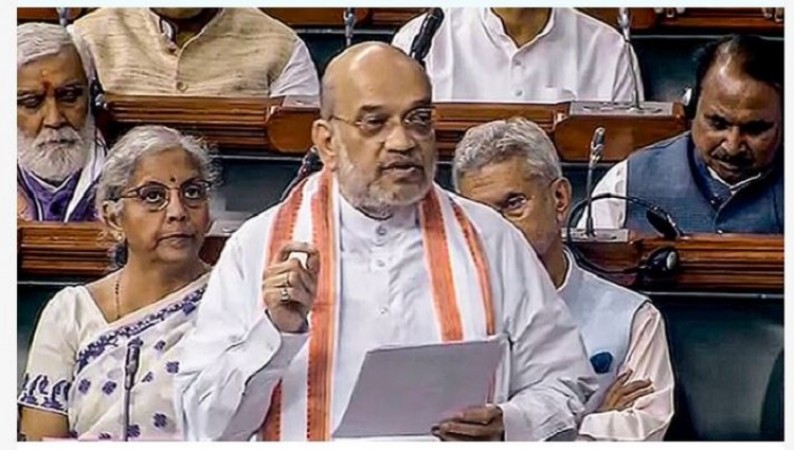
NEW DELHI: During the final session of the monsoon in Parliament, Union Home Minister Amit Shah presented three bills in the Lok Sabha aimed at replacing the archaic Indian Penal Code, Code of Criminal Procedure, and Indian Evidence Act.
In his introduction of the bills, Shah highlighted that the revised bill for the Indian Penal Code (IPC) would entirely eliminate the charge of sedition. These three bills – the Bharatiya Nyaya Sanhita, 2023; the Bharatiya Nagarik Suraksha Sanhita, 2023; and the Bharatiya Sakshya Bill, 2023 – will be subjected to further scrutiny by a parliamentary panel, as announced by Amit Shah on Friday.
Shah addressed the historical context, noting that the laws to be replaced primarily served the purpose of fortifying British administration. Their aim was punishment rather than the dispensation of justice. Through the enactment of these three new laws, the focus will shift to safeguarding the rights of Indian citizens, Shah asserted in the Lower House of Parliament.
It's noteworthy that the existing British-era laws have governed India's criminal justice system for decades. From 1860 to 2023, the nation's legal framework was shaped by British legislation. The introduction of these three laws heralds a significant transformation in India's criminal justice system, Shah affirmed.
Key Highlights of the Bills: Bharatiya Nagrik Suraksha Sanhita, 2023: This bill stipulates that bail may be granted if an individual has spent at least half the maximum punishment duration for the committed crime in jail during the trial process.
Bharatiya Nyaya Sanhita: For organized crimes and terrorist activities, new offenses related to terrorism and organized crime have been incorporated into the bill, with stringent penalties.
Gender-Neutral Offences: The Bharatiya Nyaya Sanhita, aiming to replace the IPC, renders several offenses gender-neutral.
New Offenses: The bill introduces a fresh offense category encompassing acts of secession, armed rebellion, subversive activities, separatist actions, or actions endangering India's sovereignty, unity, and integrity.
Enhanced Fines and Penalties: Punishments and fines for various offenses have been suitably amplified.
Civil Servant Prosecution: The bill facilitates expedited approval for prosecuting civil servants.
Trial of Absconding Criminals: A provision enables the trial of fugitive criminals, like Dawood Ibrahim, in absentia.
Distinct Offenses: Offenses such as separatism and waging war against the nation are now explicitly defined as separate legal violations.
Tougher Rape Penalties: Gang rape cases now carry imprisonment terms of 20 years or life imprisonment. In instances involving girls under 18 years old, the death penalty is now an option.
Mob Lynching Punishments: For mob lynching, the bills encompass jail sentences of 7 years, life imprisonment, and even the death penalty.
Definition of "Life Imprisonment": Amit Shah clarified that "life imprisonment" will henceforth be synonymous with "imprisonment for natural life."
In sum, India's legal landscape is on the cusp of a transformative change, as the nation moves from inherited British-era laws to modernized statutes tailored to protect the rights and justice of its citizens.
Scindia's Response to Kamal Nath's Statement on Hindu Nation